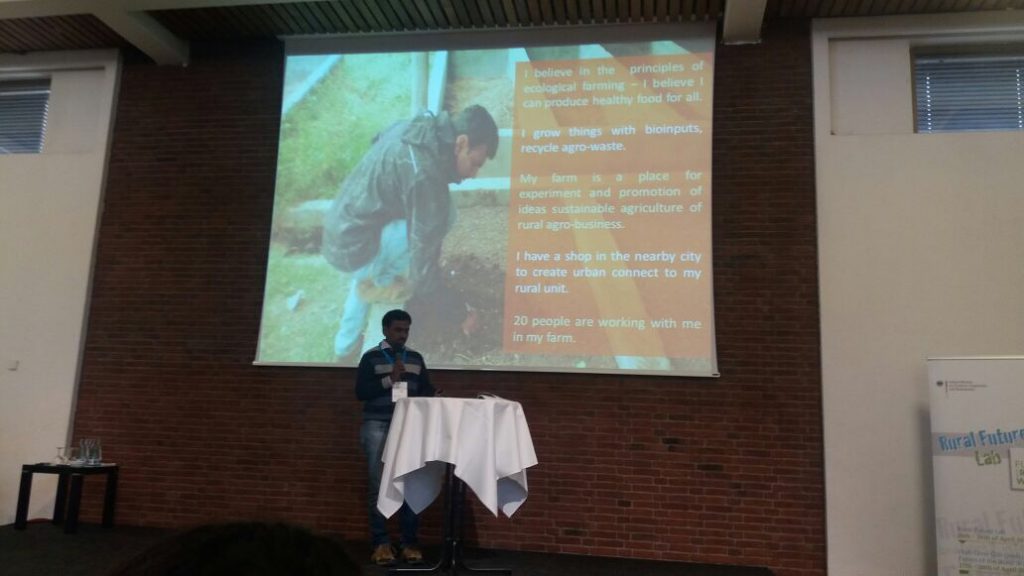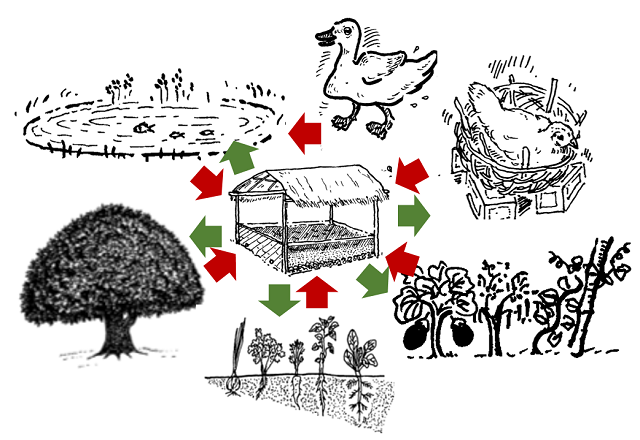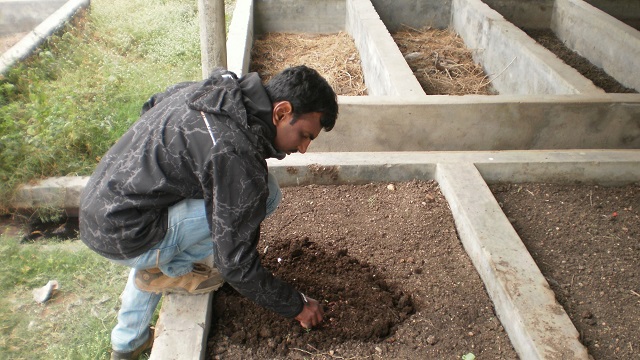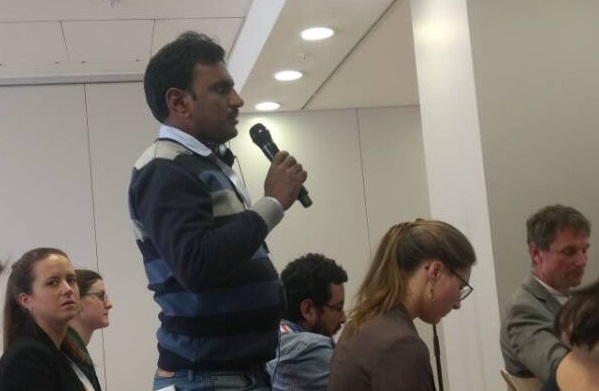
Achintya is an ecopreneur from the Burdwan district of the eastern state of West Bengal. Though he has done a Masters in Computer Application, he chose to become a farmer and live his dream of creating his own biodiversity farm.
At the ‘Rural Future lab’ workshop, during the ‘One World, No Hunger: Future of the Rural World’ conference hosted by the German Development Ministry (BMZ) in Berlin, Achintya shared the story of his journey and what he does now.
Supported by his father and through a bank loan, Achintya bought 20 acres of barren land in 2004 and began farming on it. He grew vegetables and fruits but was keen to learn new things. In 2014, Achintya took part in sixty days training programme on “Integrated Fishery” offered at the Green College set up by Welthungerhilfe in collaboration with the partner DRCSC. The training helped him integrate fishery and farming together. Interested in deepening his knowledge on agroecological farming, Achintya participated in a six months certificate course on Agroecology by the Centre for Pollination Studies, University of Calcutta under the Indo-Norway Collaboration Programme, technically assisted by Welthungerhilfe.

Demonstration of Achintya’s farm
Today, he has a farm, with components like fishery, poultry, duck, nursery, orchard, vegetables connected to each other and integrated with vermicompost unit internally. “I believe in the principles of ecological farming. I believe I can produce healthy food for all,” he says.
He has a store attached to his farm from where he sells fruits, vegetable, chicken, eggs and fish. Achintya wants to further his business. “I want to add Food Processing, and Fish Feed Making unit as a value-added business. I am working to create my own brand and get certification. So that, I can create more jobs in my farm, and many such small business hubs can be the core of an agro-based economy.

Achintya at his farm
Currently, 20 people work with him on his farm. He believes if natural resources are utilised optimally and sustainably, everyone in the village can lead a good life and don’t have to go to the cities for employment. “Creating better job opportunities will help villages develop economically and address issues such as hunger, poverty, lack of education and health,” he further says.
“I want to see villages in India to be completely self-sufficient, having their own resources for employment and food security,” he adds.
Achintya is one of over 8000 youth trained under Welthungerhilfe’s Green Colleges Initiative that focuses on training rural youth from the most underdeveloped districts in the states of Jharkhand, Odisha, West Bengal, Maharashtra and Karnataka. The initiative is supported by the German Federal Ministry for Economic Cooperation and Development (BMZ) and the Gesellschaft für Internationale Zusammenarbeit (GIZ).




